7 Books and 7 Lessons on Paleo Eating and Fasting
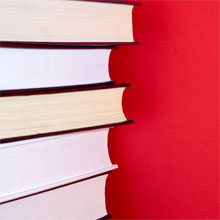
Let’s wrap our conversations about weight loss and emotional eating with some books I’ve read about Paleo eating and fasting recently. I’ve read a lot about Paleo and fasting over the last three months (you can find all the books I’ve read listed here on Amazon) and as usual with my book round ups I don’t recommend all the books I’ve read; only the best ones are listed below.
I started researching Paleo after Robin Dickinson raved about Paleo and said I’d love it. He presented it as a lifestyle choice which included exercise and eating tips, not just a diet, so that got me interested because I am not into fad diets at all.
Since then I’ve been doing a lot of research and there are a few conclusions I’ve drawn.
But before we start, if you’re wondering what Paleo is, it’s about eating as our hunter-gatherer ancestors did including a diet based around plants and meat. You’ll find out more about eating Paleo-style as you read on.
7 Big Lessons From my Research on Paleo Eating and Fasting
1. We need to eat real food, not meal replacement shakes, not processed junk and not ready-made meals (even if they claim to be low calorie, fat free, gluten free or whatever). Michael Pollan, the author of In Defense of Food: An Eater’s Manifesto (a book I haven’t read) is widely quoted as saying:
“Eat food. Not too much. Mostly plants.”
The problem is that we all know that we should eat real food in limited quantities but we don’t do it. Even (mostly) healthy eaters like me still get tempted by ready-made bars (like sugar free chocolate!) in the health-food aisle. But they’re not healthy because they’re processed food too.
Reading the books listed below was the tipping point for me. Seeing scientific proof and hearing the same message repeatedly made me determined to change my diet and (mostly!) cut out grains, sugar and processed foods. Even the ‘healthy’ processed foods on sale at the health-food store.
2. It’s not just what we eat that’s killing us, it’s the choice we’ve made to stop cooking. A recent article in The Sun Magazine mentioned that many people spend more time watching cooking shows like Masterchef than they do actually cooking.
That’s crazy. We need to change our lifestyle so we do have time to buy, cook and eat the fresh foods which really satisfy us because they taste better and give our bodies the nutrients we need.
We need to put the pleasure back into food preparation and appreciate the time it makes to prepare good food so we appreciate eating it more.
3. Over-eating might have a scientific base because if you’re eating food with low nutrients then your body doesn’t register hunger. Your body only tells you to stop eating when it’s got the nutrients you need. So that binge on chocolate, chips or lollies might have a lot to do with physiological reasons as well as the psychological reasons around emotional over-eating.
Our bodies need specific amounts of a wide variety of nutrients and if they don’t get them they’ll carry on eating until they do. Which would be forever if you’re eating low nutrient food. This could partly explain the obesity epidemic.
4. Your health and eating habits are your responsibility. We’re still confused about healthy eating and new research adds to that confusion. If you follow point one above you’ll be on the right track but some of the things we think are healthy aren’t, like drinking carrot juice because your body cannot deal with digesting ten carrots in one hit.
We all need to be responsible for reading about healthy eating and take charge of our health because it’s all we’ve got.
5. Allow yourself wiggle room with your eating and don’t go for the all or nothing approach. After reading all these books about Paleo and fasting I’m now convinced eating bread (grains) and sugar are bad for me I’m not planning to never eat them again. That would make me feel deprived and crave them even more.
If I’m in Italy I’ll eat bread and pasta in small quantities. If I fancy freshly baked bread with my gazpacho (fresh cold tomato soup) I’ll buy the best loaf of bread I can find and satisfy that craving.
Being a chocolate addict I cannot give up chocolate but I have cut down and I do stick to dark chocolate which has less sugar.
6. The fasting diet appeals to me because you really don’t have to go hungry and it’s easy. I feel fine going to bed without supper and can still workout in the morning before breakfast with no problem. I love having a night off cooking although I still have to prepare food for the rest of the family.
The fasting approach is recommended in all the books about Paleo eating, not just in the book about fasting.
7. Experiment to see what works for you. I’ve made some radical changes since reading these books, like swapping skim milk (which I’ve been drinking for decades), for the full fat version because these books say we need fat.
I’ve (mostly) cut out most carbohydrates like noodles, bread and potatoes although white rice and sweet potatoes seem to get the thumbs up. I still eat dairy, tofu and beans or pulses because I don’t like eating a lot of meat.
I will never eat a strict Paleo diet but I’d describe my eating habits as ‘Paleoish” which seems like the right choice for me.
At the moment it’s just me who’s trying these new eating habits in our family and I feel bad about buying biscuits for my children but healthy eating is about making one change at a time.
I’m moving in the right direction and doing the best I can with my time, budget and while catering for a family of five who all have different likes and dislikes. Progress may be slow and imperfect but it’s still progress.
7 Books on Paleo Eating and Fasting
Sadly I don’t have all the answers but the advice in these books (check out my Amazon Paleo Eating and Fasting book list here) has definitely made me rethink and question what and how I eat which has to be a good thing.
There was a lot to be learnt about how to eat in Italy that’s not based around science or the latest research but instead rooted in a culture that enjoys good local food and company. Many of the lessons about eating fresh, local food were on show in Italy and if you avoid the bread and pasta it’s a great place to practice Paleo eating.
If you can’t go to Italy but weight gain or emotional eating is an issue for you here are some recommended books to get you started:
1. The Paleo Manifesto by John Durant – What I thought was going to be a book about eating turned out to be about how our eating habits have evolved since pagan days to now.
The Paleo Manifesto covers religion, lifestyle, diet and exercise with lots of good tips on what not to eat, what to eat and why. This book’s part history, part health and totally thought-provoking. A great read.
2. The Primal Connection by Mark Sisson – Mark Sisson is the big online Paleo guy at Mark’s Daily Apple where you can find tips about eating Paleo style and exercise.
The Primal Connection promises to “Reprogramme Your Genes for Effortless Weight Loss, Vibrant Health and Boundless Energy” which has to be the best sales pitch ever.
3. The Primal Blueprint Cookbook by Mark Sisson with Jennifer Meier – Although the book was only published in 2010 the recipes and photos look very old fashioned. Maybe that’s in keeping with this ancient way of eating but the results is a recipe book full of recipes that didn’t appeal to me.
Part of the problem is that there are so many meaty dishes and meals based around offal which is not good for a semi-vegetarian like me. But I did find a few recipes I’d like to try including braised cabbage, roasted cauliflower with lemon mustard dressing, spinach “bread” and nut crackers. The cauliflower “rice” sounds interesting too.
4. The Fast Diet by Dr Michael Mosley and Mimi Spencer – The word fast in the title means fast as in not eating, not fast as in quick and the book is based around the idea that you fast for two days every week by going for 16 hours without eating. So on those two days you can eat breakfast and lunch or lunch and supper but you have to miss the third meal and snacks.
Catherine Saxby’s got a longer review of The Fast Diet on Foodwatch here and I first got interested in it because Nikki Parkinson from Styling You swears by fasting here.
5. The Body has a Mind of Its Own by Sandra Blakeslee and Matthew Blakeslee – This is more of a science and psychology book than a how to Paleo or fasting manual but I’ve included it because we need to embrace a holistic approach to healthy living. There aren’t any actionable tips in this book but there are lots of ideas on how you can change your outlook and life by understanding how our mind, and senses we don’t even know about, guide our life decisions – including what we eat.
I was especially interested in somatic psychology which helps people access bound up energy and release it gradually by tracking feelings and sensations in the body and how being able to read and interpret our body’s sensations through interoception is crucial for emotional intelligence. These ideas could help us overcome emotional eating.
6. Perfect Health Diet: Regain Health and Lose Weight by Eating the Way You Were Meant to Eat by Paul Jaminet, Shou-Ching Jaminet – This book blinded me with science. It’s a heavy tome which goes into far too much detail on nutrition and science for my liking. I had to skim read a lot of it.
But there are some great takeaways and each chapter ends with a takeaway so just read those. The main point here seem to be to avoid grains and sugar but that potatoes and white rice as well as meat, fruit and vegetables are fine.
7. Grain Brain by Dr. David Perlmutter with Kristin Loberg – Dr. Perlmutter is a neurologist who studies and writes about the brain and nutrition. His research indicates that gluten and carbohydrates are destroying our brains and that even so called healthy grains such as whole grains can cause health problems like dementia, anxiety, headaches and depression.
This book was huge wake up call. Until I read this I thought it was just people with coeliac who needed to avoid grains. Now it seems as if they’re bad for all of us.
Looking for more recommended reads? If you want to check out these Paleo books or my other Amazon books lists you’ll find them here.
What’s your take on Paleo eating or fasting?





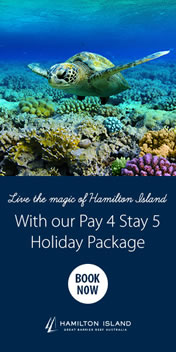
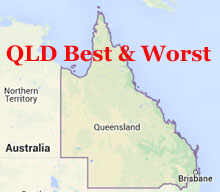

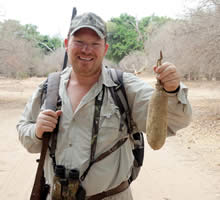
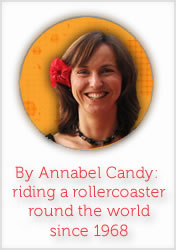


Hi Annabel
Great post! It’s strange how so many of us know what we should eat or not eat but still succumb to ‘the easy, fast way out.’ Thanks for the book list and all the information. I am addicted to fresh bread. I know I shouldn’t eat it but love it. Chocolate is not a problem but oh how I love salted chips. Both the hot and packet variety! I will go back and re-read your post and put some useful things in place. Thanks so much.
Jude
Hi Judy,
Ah, we all have our food weaknesses – it helps to know what they are :)
Hi Judy,
Did you know that bread can be addictive? I thought you might find this info below interesting. Here is what New Zealand Medical researcher Jason Shon Bennett says:
“Why is gluten so addictive?
Gliadorphins are incompletely broken down pieces of gluten. These have been shown to react with opiate-receptors in the brain and mimic the effects of opiate drugs like heroin and morphine, thus giving gluten that addictive role. Just like these drugs, when gluten binds to your brain opiate-receptors you can experience momentary positive effects like mood elevation, confidence and calm. This can lead to an emotional attachment to bread that can verge on addiction in some people. Long term, excessive gluten consumption can lead to low moods, bowel disturbances and even anxiety or depression in sensitive individuals.”
Have a good day. Jamila
Hi Annabel,
Really interested to see that you have moved in this direction… and I agree that we have to find out what works best for us as individuals. I had to go gluten free after being diagnosed with coeliac disease, but it made no difference to my levels of health, so I went searching. The ‘diet’ I came to rest on was SCD / Paleo, and it works for me (combined and tweaked). I now eat mostly unprocessed foods, lots of fresh, home cooked veges and biodynamic meats. I just want to assure you (as a reformed chocaholic), it is possible to give up chocolate – if you want to or need to – and still enjoy life :-) . Difficult to imagine, I know. Bread, uh uh, who cares? My weak point is potatoes…
Great post, thanks for sharing all your reading.
Cate x
Hi Annabel, another great blog. Thank you for sharing all this info on Paleo eating and more. There are three more books you might like, all are here from NZ. Two are from Dr. Libby Weaver “Real Food chef” and ” Real Food Kitchen”. And from Jason Shon Bennett “Eat Less, Live Long”
By the way, this weight loss program I do with clients is very similar to the Paleo way of eating.
Have a great day!
Jamila
Hi Annabel, anotehr great blog. Thank you for sharing all this info on Paleo eating and more. There is three more books you might like, all are here from NZ. Two are from Dr. Libby Weaver “Real Food chef” (available on Amazon along with her other great books and ” Real Food Kitchen”.
And from Jason Shon Bennett “Eat Less, Live Long”
By the way, this weight loss program I do with clients is very similar to the Paleo way of eating.
Have a great day!
Jamila
What irritates me about many food books is that the person who writes them tends to verge on a religious obsession that their belief is the holy grail of eating and so their text can be slightly biased!
And Annabel ~ There’s nothing wrong with cacao – BUT… Note the difference between healthy cacao and, also note the difference in spelling here – bad cocoa, which has been stripped of any nutritional benefits :)
Try some no cook brownies (no grain, sugar or dairy!) next time you’re after a quick real chocolate cacao fix
I was unaware of paleo eating and fasting. Thanks for giving me good information above paleo eating and fasting via books and lessons.
~Diana